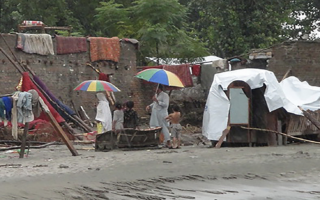
This project locates and traces the effects of climate and environmental stressors in the lives of children, adolescents, and youth within and across generations. The aim is to pinpoint inflection points where the effects of stressors are manifested in life course transitions, trajectories, and outcomes—including education, unions and marriage, parenthood, employment, and migration. It highlights the pathways, mechanisms, and effects of different climate-related hazards on the lives and livelihoods of adolescents and young people, and identifies points of intervention including livelihood diversification, safe migration, or learning new skills and finishing school.
Partnerships with youth on the global climate response have been historically limited, often treating climate hazards as one-off events instead of a part of the broader climate crisis. These support the next generation in mitigating, adapting to, and increasing resilience to climate and environmental stressors. This includes promoting readiness and responsiveness to both anticipated and experienced stressors across the life course. In Bangladesh, Guatemala, and Nigeria qualitative research will help to understand youth perceptions and experience with climate change and center youth perspectives.
The work to date has included collaborations with the GIRL Center to highlight youth migration patterns, needs, and experiences across contexts, with attention to the differentiated experiences of girls. Secondary data analysis explores how migration, urbanization, and climate relate to sexual and reproductive health rights and justice. In Mexico, novel data from the landmark VoCes-19 survey describe the needs and experiences of young people in relation to climate change to identify differential vulnerabilities and harms, and explore how climate may relate to mental health and violence outcomes.




